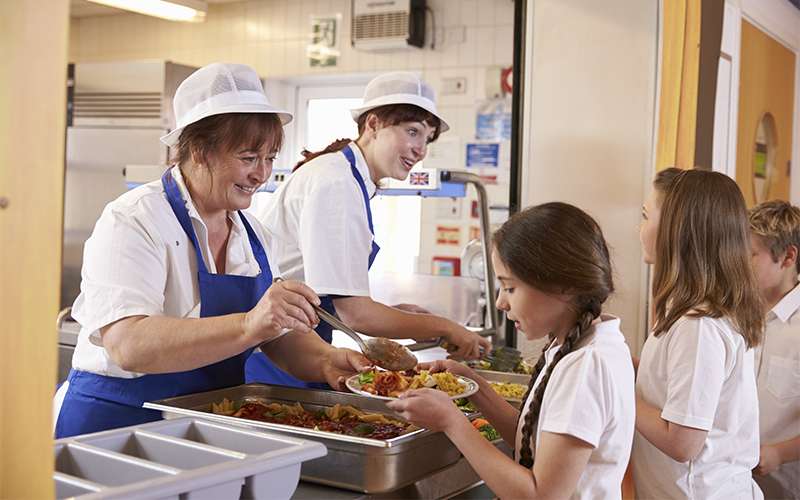Ed Baines and Peter Blatchford
School lunchtimes have been stirring up a lot of interest. Jamie Oliver’s campaign to improve school meals has been very successful and the Children’s Food Trust has picked up the mantle to help schools improve children’s dinners with their latest survey showing year-on-year increases in uptake of school meals. All of this should help improve the health of our children and address concerns about obesity. But there is another way in which school meals and lunch times are important, and that is their social value.
School lunchtimes are often overlooked as a key time during children’s lives for socialising with peers and friends of their own choosing. In a programme of research studies we have conducted, we have found that breaktimes, and particularly lunchtimes, are a main site for meeting with friends and engaging in enjoyable activities in relative safety without the close intervention or control of an adult. In contrast, children in class are quietened and hurried along by teachers anxious to make the most of the curriculum time available. Our surveys also have shown that out of school there are reduced opportunities for socialisation and outside play – largely brought on by parental concerns about transport and stranger danger.
School lunchtimes therefore provide one of the main opportunities for free social interaction with friends and peers and – worryingly – for some it might be the only time. Despite the huge attention given to incidences of bullying, our surveys of pupil views also show that for the vast majority of children, for the large majority of the time, school lunchtimes are important times for developing relationships and social skills.
Children engage in extended conversations on topics of their own choosing, learn about small talk and share enjoyable experiences, plan activities together with friends and acquaintances and support each other when life is not so rosy, develop early forms of social capital and learn the give and take of social relationships. School lunchtimes therefore offer a wealth of social, emotional and moral opportunities – but they are overlooked as occasions for the learning of important lessons, largely because teaching does not take place and they are not part of the formal curriculum.
What is more, lunchtimes, whether we are talking about eating a meal or opportunities for outside play and social engagement, are times that the substantial majority of children in our surveys report being very happy indeed. So from the perspective of recent efforts to measure and to improve national happiness and wellbeing one could do much to try and preserve these social occasions for children.
However, our national surveys of school breaktimes, funded by the Nuffield Foundation, have made it clear that the length of school lunchtimes have been shortened over the past 20 years. The main reasons cited are worries about covering the curriculum and pupil behaviour. Secondary schools in particular seem to see lunchtimes in functional terms as times to have a break and eat, and shorten them accordingly. Many offer only 35 minutes for lunch before students are expected to head back to the classroom for another dose of instruction.
It may be that such reductions are at the expense of time for social activity and play rather than eating time. Our surveys suggest that children and adolescents are happy with the amount of time they have to eat but feel they should have more time to interact with friends and peers outside of the dining room. We worry that there is a general absence of understanding about these times, how they are organised, what takes place and their social and emotional value.
When thinking about school lunchtimes we should not forget that these times are principally social events. It may even be the case that the recently identified positive benefits associated with meal times (for example, on classroom engagement) may be as much to do with improved opportunities to socialise with friends and peers as the food and opportunity for a break.
When challenged, policy makers and schools might be excused for thinking that break and lunchtimes are disposable. They are often cited as occasions for negative behaviour and there are concerns about health and safety and taking time away from school work. It might also be argued that social and emotional skills are often taught as part of the school curriculum (through SEAL, PSHE and circle time). While these lessons are good opportunities for reflecting on and thinking about social relationships and behaviour, they are not, and can never be, replacements for the real thing.

 Close
Close


 Lunch at the school canteen in Lisbon (left) and in London (right)
Lunch at the school canteen in Lisbon (left) and in London (right)